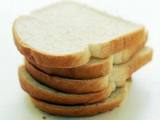 |
| Usain Bolt receives a masterful chiropractic adjustment |
In my early practice years I would go to seminars and watch to see how successful chiropractors conducted themselves. The truly masterful adjusters had been in practice for years and regularly saw many, many patients. People were attracted to their practices because their adjustments were extraordinarily effective. Patients got results from these chiropractors they didn't get elsewhere. Most of these chiropractors had one focus - to deliver outstanding chiropractic adjustments. How did they get to be great adjustors? They adjusted a lot of people and constantly focused on how they were providing those adjustments. They weren't satisfied with being mediocre. It was a constant that I observed in those who delivered outstanding adjustments regardless of which chiropractic technique they used.
In Malcolm Gladwell's book, "Outliers", he proposes that in order to become truly great in a given field, a person needs to practice for 10,000 hours. This applies to athletes, musicians, computer programers, scientists and, by extrapolation, even chiropractors. While there may be holes in his theory, my experience is that when I had been in practice for 10,000 hours my skills where exponentially better than when I started practice. When I had delivered 10,000 adjustments, my adjustments were amazingly more effective than when I thought I was a good chiropractor after graduating. As I look back there has been a constant improvement of the effectiveness of my adjustments over the years. I believe I am giving better adjustments today than I gave 5 years ago. I see the same thing in my associate doctors. They are becoming better and better with constant practice. The more adjustments they give, the better the adjustments they give.
I'm moved to reflect on the importance of mastering the difficult skill of the chiropractic adjustment because of a growing trend in the chiropractic profession. There are groups of chiropractors, even here in Alberta, who are pushing to have chiropractors prescribe drugs. Now there is a time and place for drugs to be used, but that should remain in the hands of those who's focus is medication - the medical profession. There are real dangers for chiropractors being able to prescribe pain killers and muscle relaxants. One such danger is that it is too easy. Young chiropractors who have not yet mastered the chiropractic adjustment will be drawn to prescribe drugs to make up for the deficiency in their adjusting skills. As a result they will prescribe more and adjust less never becoming masters and their patients will be worse off for it. The default for most people, including professionals, is to take the easy road. Sadly, when chiropractors are not masterful adjustors, patients usually don't get the results they were seeking and think chiropractic doesn't work. Even more significantly the powerful effects of chiropractic on overall health are missed. The great potential for these people has been denied because of the failure of the chiropractor to give the patient a great adjustment.
It has been fortunate for the chiropractic profession that we have not been able to prescribe drugs. It has forced us to refine and master the chiropractic adjustment. The result is that chiropractic has developed an enviable record of both results and safety. This has not been an easy road for my profession, but it has been the right road. The beneficiaries of taking this difficult path are the many patients who have had life changing experiences because of masterfully delivered chiropractic adjustments. I pray that my patients are among those people.





















